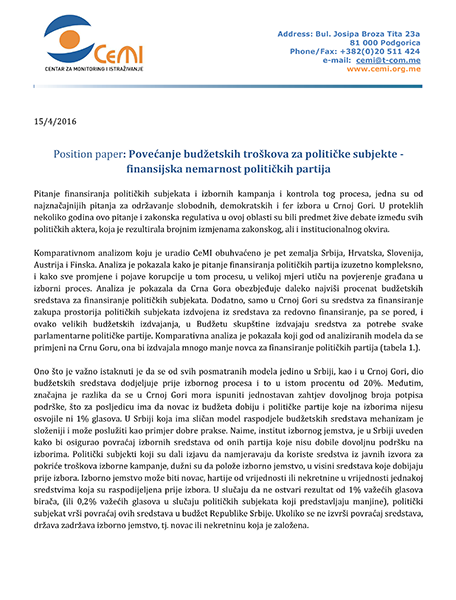The issue of financing political entities and election campaigns, as well as controlling this process, is one of the most significant matters for maintaining free, democratic, and fair elections in Montenegro. Over the past few years, this issue and the legal regulations in this area have been the subject of lively debate among all political actors, resulting in numerous changes to the legal and institutional framework.
The comparative analysis conducted by CeMI covered five countries: Serbia, Croatia, Slovenia, Austria, and Finland. The analysis showed how the question of financing political parties is extremely complex, and how all changes and instances of corruption in this process largely influence citizens' trust in the electoral process. The analysis revealed that Montenegro allocates by far the highest percentage of budgetary resources for financing political entities. Additionally, only in Montenegro are funds for renting premises for political entities separated from regular financing funds, so in addition to these substantial budgetary allocations, funds are allocated in the Parliament's budget for the needs of each parliamentary political party. The comparative analysis demonstrated that regardless of which of the analyzed models is applied to Montenegro, it would allocate much less money for financing political parties.
